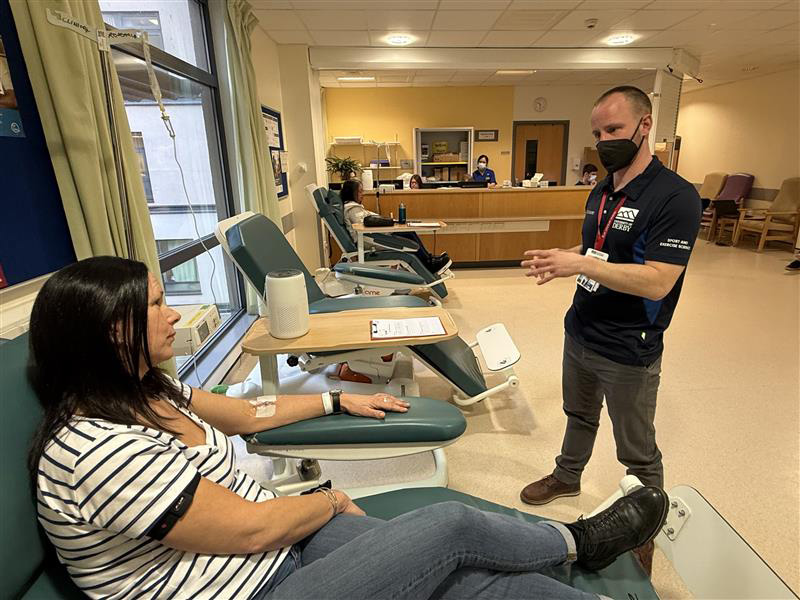New report finds more than a quarter of universities have a food bank and one-in-ten distributes food vouchers

A new report by the Higher Education Policy Institute explores how universities are responding to the severe effects of the cost-of-living crisis on students.
The new research by Josh Freeman, Policy Manager at HEPI, How to Beat a Cost-of-Learning Crisis: Universities’ Support for Students (HEPI Report 163, attached), is based on a statistical analysis of 140 university responses and interviews with nearly 60 university professionals.
It finds that higher education institutions have adopted a range of strategies to support students, through hardship funds, food and drink discounts and support with health such as sanitary products, coordinated by cost-of-living ‘working groups’, new committees not bound by the usual university processes.
The report probes the rapid responses of two universities with case studies. The University of Manchester sent £170 cost-of-living payments to more than 90% of students, setting up enquiry forms which handled more than 16,000 queries. At Buckinghamshire New University, a programme to provide free activities saves students up to £200 a month, and those which received its hardship fund had a 7% higher progression rate than those that did not.
Yet the report also finds that universities are being forced to take steps which would have been unthinkable just years ago. More than a quarter of universities (27%) have a food bank, including one third (33%) of Russell Group universities and nearly two-thirds (63%) of universities in Wales. One-in-ten (11%) also distributes food vouchers.
Josh Freeman, author of the report, said:
‘This report shows that universities are stepping up as students experience their second major crisis in four years. Rather than leaving innovation to the laboratory, student advisors, university leaders and students’ union officers have pushed boundaries to get students more help. But there is more to be done. Universities should streamline bureaucratic hardship funds and set up processes to move more quickly. And it is past time for the Westminster Government to address the real-terms decline in maintenance support, which leaves too many students at risk of deprivation – in what are supposed to be the best years of their lives.’
Dr Simon Merrywest, Director for the Student Experience at the University of Manchester and author of the Foreword to the report, said:
‘This report clearly highlights the strength and breadth of the response to the sector to the recent cost-of-living crisis, with co-created solutions between students and university leaders at its heart. The financial squeeze of the last two years has though brought into even sharper relief pressures on students that have been growing for many years. This report raises important questions about whether universities should themselves be the ones to plug the growing gaps in student finance.’
Professor Nick Braisby, Vice-Chancellor at Buckinghamshire New University and author of the Afterword to the report, said:
‘This timely report highlights one of higher education’s greatest modern-day challenges – inequality of access, participation and achievement. This challenge is exacerbated by a combination of the cost-of-living crisis and government policy (or lack of policy intervention). Higher education providers are doing what they can to support their students, and this report contains much insight as to how they could provide more and more effective support. BNU is proud to be recognised in the report for our comprehensive award-winning support package, enabled by agile leadership, flexible processes and committed staff.
‘But Universities should not and cannot bear responsibility alone for addressing the cost-of-living crisis facing our students. We concur with the report’s call for government to do much more – if they do not, higher education study will simply become unaffordable for many of our students. Ignoring their needs will cause immense damage to our higher education sector, to our society and to our students’ life chances. We urge the government to heed this call for action.’
Key points:
- Three-quarters of universities (76%) help their students with food and drink, more than two-fifths (43%) provide free period products and more than a third (35%) helped to fund students’ access both to travel and digital technology.
- Over a quarter of universities (27%) operate a food bank, including one-third (33%) of Russell Group universities.
- Wales, the South West, the North East and the South East were the regions where universities were most likely to operate a food bank, with Northern Ireland and London the least likely.
- University interventions included £170 payments available to all students at the University of Manchester, free extra-curricular activities at Buckinghamshire New University, three automatic seven-day extensions on submitting classwork at Keele University and a heavily streamlined hardship fund at Manchester Metropolitan University.
Recommendations:
- Universities should establish a cost-of-living working group, streamline their hardship fund, launch an emergency fund, and include students throughout their cost-of-living response.
- Students’ unions should mount an ambitious and practical cost-of-living campaign with their university, founded on strong evidence and excellent relationships with university staff.
- Government should establish a cost-of-living taskforce which consults regularly with students and sector leaders, and urgently review the level of maintenance support.











Responses